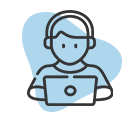Should you listen to music while working?

Can music in the background actually help you read, work, and comprehend written material better?“Turn that thing off, I’m trying to work here!”
“How on earth can you blare that music while you’re studying?”
We've often heard these, but a lot of people wear their headphones while working at a computer. People hum tunes as they type out articles. Can music in the background actually help you read, work, and comprehend written material better?
The answer is simple, really – but with a lot of caveats. Music engages the right side of the brain, so your left brain is free from distractions – which arise in that right side. As a result, you concentrate better, and you’re more productive.
The heart of the matter is that distractions almost always arise from the right brain. While you’re reading this page, for example, if you tend to doze off… that’s your right brain telling you you’re sleepy (or that this is boring). If you suddenly remember that you have a meeting in an hour, that’s your right brain again. Your left brain is saying nothing all the while; it’s trying to read.
The answer? Give the right brain some work.
This, admittedly, sounds simplistic, but the proof is all around you: Why would people want to do two completely different things (music and reading/writing/working) at the same time, when they don’t have to? Notice that this is not the same as multitasking. People working while listening to music aren’t trying to finish two tasks; they’re only trying to do one!
It’s because music helps by engaging the part of your brain that brings in the distractions.
It’s not just as simple as that. There is some ambiguity about which side of the brain music engages. Quoting Jack H David Jr of Austin Community College:
“…Music … has generally been considered a right hemisphere skill. Musical skills, however, form a mixed set. … Neither cerebral hemisphere is totally ‘dominant’ for music, but … both hemispheres are involved.
So both hemispheres are involved, but:
“The left hemisphere is … very important for musical abilities which share properties with speech … and would therefore take a greater role when the sequential and analytic aspects of music are more important.”
David mentions the aspects of music that are specific to each side. His page about this is well worth a read; take a look at figure 2 on the page.
What this implies is that music can sometimes help, sometimes distract.
- When the music is complex enough, you’ll be distracted. You can’t (or shouldn’t) try to follow Bach while you’re trying to learn.
- Words in the music distract. If you try to follow lyrics, you won’t be able to concentrate.
- If there are major variations in the music – that is, if it goes from slow to fast and back, from vocal to instrumental, and so on – it will be a distraction.
Music that can help you concentrate on your work includes elevator music (little variation or complexity), and songs you’ve heard many times before (so you don’t really listen to the words). Essentially, any tune that doesn’t demand much attention helps you work (and learn) better.
Try music to actually boost your productivity while at work – assuming your work involves left-brain activity in some way (reading, writing, visualising trends, programming, …). You’ll have to experiment with different types, though. (Try elevator music first!)
